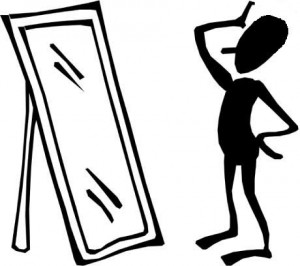Earlier this week I posted a blog about self-observation. Click here if you would like to read that first. The blog briefly explains what self-observation is and why we would want to use this skill to improve our business productivity. If you are not sure what the Enneagram is, but you are interested in self-observation, you could click here to find out what exactly the Enneagram is before reading the rest of this blog.
So, if part of what self-observation involves is our ability to objectively become aware of our blind spots, distorting filters, habitual patterns of thinking, feeling and behaving, the Enneagram is the map that can assist us in finding out what our patterns are, by illuminating very quickly for us what otherwise might take a very long time to discover. At this point I would like to make it clear that we are so much more than our Enneagram type. We have life experiences, our own specific identity, and various other lenses that shape our world view and therefore our responses to life, our environment, other people and the complexities of change, which are some of the things that present challenges to us. But the Enneagram can play a valuable part in explaining some things we just don’t understand about ourselves. 
Where does the Enneagram come in?
- It reveals for us that there are 9 distinct ways of being in the world, which is the first step in even acknowledging that people have different motivations for their behaviour
- It provides of us a very clear system through which we can plainly and accurately see that we all have a very specific motivation for why we think, feel and behave the way we do, which we can actually use to help navigate
- The Enneagram does not box us in to to one description of our characteristics, without offering us a way to personally develop. The Enneagram is an dynamic tool that can actually be practically applied in order to self-observe
Here is how you can use the Enneagram for your first step in self-observation:
Ask yourself which of the following statements makes most sense to you (through out your life, not just today!)
- I cannot make mistakes
- I have to look after everyone else
- I have to be seen to be successful (even if I don’t feel successful)
- I have to be different in order to be noticed
- I need to watch and listen to understand before I can participate
- I don’t trust others or even myself
- I cannot rely on anyone else, I have to be independent (self reliant)
- I don’t trust that people will not betray me, which is why I must always show strength
- I cannot assert myself, so I just try and avoid conflict
If one of those statements makes sense to you, you might want to start noticing when during your day or week you are believing this. Then ask yourself, how is this belief influencing your patterns of behaviour. If you can do this, you will be observing yourself, so that you can help yourself develop.

